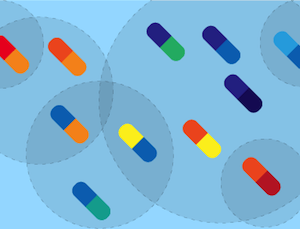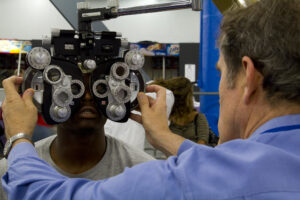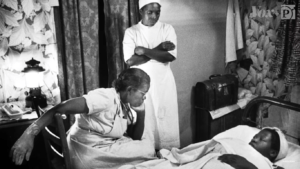The U.S. Has the Best Health Care System in the World—for Drug Companies
Two new articles dive into the ways in which the pharmaceutical industry has gamed the market forces behind U.S. drug prices, and how sweetheart deals between doctors and financing firms are gouging the economically vulnerable.
Just in case you weren’t sure, yes, the United States’ market approach to health care is a cash spigot — and a bit of a fraud, given how much pharmaceutical firms have gamed the system. And your wallets are the wellspring for all that cash.
Back-to-back stories in The New York Times dive into just two areas of excess: sweetheart deals between doctors and finance firms that set interest rates at what used to be usury levels, and the exorbitant amount of money drug companies charge U.S. patients compared with prices overseas. From the Times’ Sunday story:
Unlike other countries, where the government directly or indirectly sets an allowed national wholesale price for each drug, the United States leaves prices to market competition among pharmaceutical companies, including generic drug makers. But competition is often a mirage in today’s health care arena — a surprising number of lifesaving drugs are made by only one manufacturer — and businesses often successfully blunt market forces.
Asthma inhalers, for example, are protected by strings of patents — for pumps, delivery systems and production processes — that are hard to skirt to make generic alternatives, even when the medicines they contain are old, as they almost all are.
The repatenting of older drugs like some birth control pills, insulin and colchicine, the primary treatment for gout, has rendered medicines that once cost pennies many times more expensive.
“The increases are stunning, and it’s very injurious to patients,” said Dr. Robert Morrow, a family practitioner in the Bronx. “Colchicine is a drug you could find in Egyptian mummies.”
Even more nefarious are health care providers setting up patients who can’t afford vital care with financing groups that charge interest rates of more than 20 percent.
In dentists’ and doctors’ offices, hearing aid centers and pain clinics, American health care is forging a lucrative alliance with American finance. A growing number of health care professionals are urging patients to pay for treatment not covered by their insurance plans with credit cards and lines of credit that can be arranged quickly in the provider’s office. The cards and loans, which were first marketed about a decade ago for cosmetic surgery and other elective procedures, are now proliferating among older Americans, who often face large out-of-pocket expenses for basic care that is not covered by Medicare or private insurance.
The American Medical Association and the American Dental Association have no formal policy on the cards, but some practitioners refuse to use them, saying they threaten to exploit the traditional relationship between provider and patient. Doctors, dentists and others have a financial incentive to recommend the financing because it encourages patients to opt for procedures and products that they might otherwise forgo because they are not covered by insurance. It also ensures that providers are paid upfront — a fact that financial services companies promote in marketing material to providers.
The Times said it found that many patients were sucked in by low or no-interest rates for a probationary period, but that the usurious rates then kicked in, sometimes exceeding 33 percent.
And who are most likely to rely on that kind of financing? The poor, and the elderly living on fixed incomes. Pressure from state attorneys general have led to some changes, the Times reports, but the practice remains widespread. As for the cost of drugs? No reforms on the horizon, given the $250 million the pharmaceutical companies poured into lobbying last year alone, outspending the defense industry.
All that lobbying has paid off:
Lawmakers in Washington have forbidden Medicare, the largest government purchaser of health care, to negotiate drug prices. Unlike its counterparts in other countries, the United States Patient-Centered Outcomes Research Institute, which evaluates treatments for coverage by federal programs, is not allowed to consider cost comparisons or cost-effectiveness in its recommendations. And importation of prescription medicines from abroad is illegal, even personal purchases from mail-order pharmacies.
It’s enough to make you sick.
—Posted by Scott Martelle.
Your support matters…Independent journalism is under threat and overshadowed by heavily funded mainstream media.
You can help level the playing field. Become a member.
Your tax-deductible contribution keeps us digging beneath the headlines to give you thought-provoking, investigative reporting and analysis that unearths what's really happening- without compromise.
Give today to support our courageous, independent journalists.






You need to be a supporter to comment.
There are currently no responses to this article.
Be the first to respond.